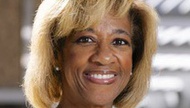Evan Scherr fell in love with teaching back when he began substituting for the Clark County School District in the early 2000s. His first gig as a licensed substitute, for a fourth-grade class at Frias Elementary School, made him feel like he was making a difference, he says.
“I just fell in love with the kids,” he recalls. “It was amazing to talk to the kids and make school a more engaging environment.”
Now teaching computer science at Orr Middle School, Scherr has decided to exit the school district. He says the job just isn’t what it used to be. “I was just joking with my teaching friends, ‘Do you remember when this was fun?’ The job is just unsustainable,” Scherr says.
“It’s not like what it used to be when I started 18 years ago. With the way the district is run and the general lack of caring, empathy and consideration for teachers and their families, I’ve just reached a point where I feel like I’ll do better mentally, physically and spiritually by just leaving the district and doing my own thing.”
And Scherr is hardly alone. He’s among hundreds who have opted to leave CCSD during the current school year. According to research analytics company Data Insight Partners, nearly 1,000 of an approximate 18,000 licensed staffers have left the school district since August 2021. On March 3, between licensed staffers and support personnel, there were more than 1,900 vacancies listed on CCSD’s jobs website (ccsd.net/employees/prospective).
Even one teacher or support staffer leaving can have a significant effect on remaining staffers’ ability to do their jobs, they say. Rancho High School history teacher Reuben D’Silva says when six teachers quit at the start of the school year, it added to the already-full plates of the teachers who stayed. He says he’s substituting an average of three times weekly and taking on more students and more tasks, including proctoring standardized tests.
“We’re having teachers quit every day [in the district],” D’Silva says. “The No. 1 thing is probably just the stress of the job. So much is put upon us—it seems impossible.”
It’s not just teachers who have been stressed during the pandemic, of course. Students have suffered mentally and emotionally, too. D’Silva, who has noticed increased drug use, difficulty socializing and other signs of trauma in students, says he’s been seeing serious fights between students in the district on a weekly basis.
“It’s demanding,” he says. “And a lot of teachers say, ‘I can make better money and actually be more respected in another line of work.’”
Considering Nevada ranked 48th in the nation in education in U.S. News’ 2021 report, behavioral issues and other pandemic-related complications are especially unwelcome for teachers trying to get students’ test scores up to standard.
As part of a potential solution, the district has touted both its Paraprofessionals Pathway Program—which allows CCSD support staff to gain student teaching experience while working toward licensing in early childhood education, special education or elementary education—and its Teaching and Training Career and Technical Education (CTE) Program, a way for high school students to begin the path to becoming a teacher while earning their diploma.
At press time, 104 CCSD candidates were enrolled in the Paraprofessional Pathway Program and 4,000 high school students enrolled in the CTE program, according to the district.
A CCSD representative says solving teacher retention takes time, and that the licensing programs are gradual solutions to chronic staffing issues.
“It’s not a quick fix,” says Steven Flak, director of CCSD school and department recruitment. “It’s not something where we can go out there and recruit 1,300 teachers right now. There’s not a pool of 1,300 teachers waiting for us. But it’s going to be a long-term solution where we whittle away at it and continue to do the right things to become that employer of choice.”
Although many districts across the country are experiencing difficulties fully staffing their schools, teachers and other members of the local community say several other factors are at play when it comes to the sheer volume of teachers leaving, and the rate at which they are.
According to Data Insight Partners, from August to January, 970 licensed staffers have said they are leaving— 67% more than in average years. Of those who are leaving, 55 cited dissatisfaction with the district, five times more than in an average year. “It’s difficult to fill teaching positions, because the pipeline has been shrinking,” says Nathan Trenholm, a former CCSD employee who co-founded Data Insight Partners. “The one thing that we don’t see happening nationally now is the mass exodus of teachers, which is happening in Clark County.”
Scherr calls CCSD’s Paraprofessional program “phenomenal,” but points out that it doesn’t address the root causes behind the teaches departing. More than increasing the sheer number of staff, teachers say, improving work environment, pay and benefits—and having accountable and effective leadership and a supportive community—are essential in retaining staffers.
“High school students are seeing how unhappy, how stressed out, how tired their teachers are,” Scherr says. “Do you really think the ones who decide to go on to higher education are saying ‘Man, I want to do that.’”
As for what’s next for Scherr, he plans to continue fighting for improvements for CCSD teachers and students. “When you have wonderful educators leaving before they hit full pension, that’s a sign that it’s unsustainable,” he says. “And the community suffers from losing those teachers.”
Alexis Salt, who teaches at a pre-K-12 school in Indian Springs and has been teaching in the district for 16 years, says CCSD leadership needs to change its approach when it comes to decision-making, and to take teachers more seriously.
“When we tell you our testing schedule is borderline abusive, they need to listen to us,” she says. “When we tell you that standardized programs are not reaching the kids that are sitting in front of us, they need to listen. There needs to be a real change in the philosophy of leadership, that this is not a top-down endeavor. This is a team. And the closer you are to the children, the more important your job is.”
Click HERE to subscribe for free to the Weekly Fix, the digital edition of Las Vegas Weekly! Stay up to date with the latest on Las Vegas concerts, shows, restaurants, bars and more, sent directly to your inbox!




